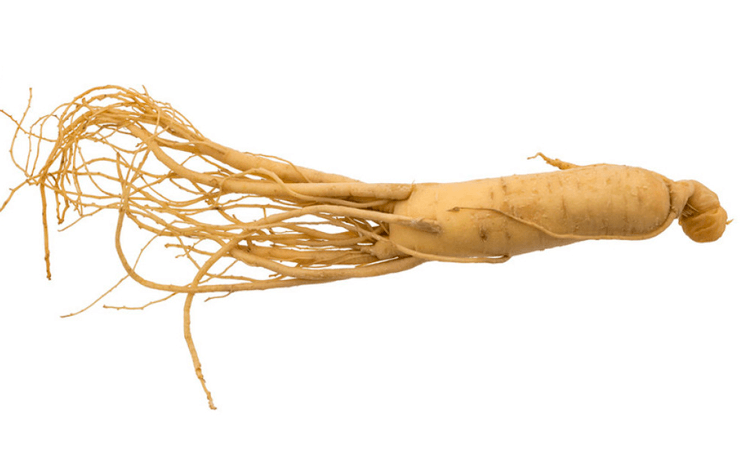Ginseng Roots Extract is a tonic, energizing, and adaptogen that is useful against stress. What are its properties and contraindications? How and when to hire it?
The ginseng (Panax ginseng) belongs to the family Araliaceae. Known for its adaptogenic and anti-stress properties, it is also used to treat diabetes mellitus, thanks to its hypoglycaemic qualities. Let’s find out better.
Properties of ginseng
The virtues of ginseng are attributable to different components present in its roots. In addition to good content in vitamins, essential oil, and polysaccharides (panaxani), it should be noted the presence of triterpene saponins, called ginsenosides, the main active ingredients of the drug.
The plant has tonic properties and adaptation because it favors the body’s ability to adapt to stress by strengthening the immune, endocrine, and nervous system and improving physical and mental skills.
Like all plant adaptogens, Ginseng root extract improves the response of the brain and adrenal glands, thus increasing the body’s resistance to the most diverse chemical, physical, mechanical, pharmacological, and biological agents.
Several studies have shown that Ginseng root extract influences the hypothalamic-pituitary axis by increasing the release of ACTH, which induces the adrenal release of cortisol or “stress hormone”. The cortisol promotes the synthesis of glycogen and proteins in the muscles and stimulates the immune system function, enabling your body to withstand better cold, heat, chemical poisoning, fatigue, etc.
Studies on Ginseng
Numerous studies also show its hypoglycemic properties, useful for reducing blood glucose concentration, in the case of diabetes mellitus. Ginsenosides seem to favor pancreatic insulin synthesis and increase glucose transporters in the liver; the panaxanes (polysaccharides) seem to decrease the synthesis of glucose in the liver and increase its use in the various body tissues.
Its stimulating properties act on all systems thanks to its ability to temporarily increase function and activity quickly resulting in improved reflexes, accelerated nerve response, reduced mental fatigue, and strengthened physical endurance, and memory, making it suitable for those who study or have an intense sporting activity.
Always considered a particularly male aphrodisiac food, ginseng stimulates sexual desire and functions. This virtue seems to link the ability to increase the release of nitric oxide from the endothelial cells of the cavernous bodies of the penis; the resulting vasodilatation would allow a more vigorous erection to be achieved.
Among the various species, Chinese medicine associates the major aphrodisiac properties with red ginseng, whose coloring is due, simply, to the treatment of the root with steam (120-130 ° C for about 2-3 hours) and subsequent drying.
Description of the plant
Perennial, upright, and 30-80 cm tall. Hairless stem with terminal vertically 3-5. The leaves are palmate, thin, finely toothed, gradually acuminate, 7-20 cm long, and 2-5 cm broad.
The rhizome is fusiform and fleshy, often webbed apex giving a human form. The inflorescence is simple or branched, with 1-3 umbrellas of 15-30 flowers each. The flowers androgynous have green-yellow blooms. The fruit is a drupe the size of a pea, globose or reniform, purple, glossy, and smooth, with two seeds.
The habitat of ginseng
Native to the northern hemisphere in East Asia (mainly Korea, North China, and Eastern Siberia) and North America, Ginseng root extract typically develops in colder climates. The Vietnamese species of Panax is the most common.
Contraindications of ginseng
Ginseng intake is contraindicated in cases of hypertension, tachycardia palpitations, insomnia, anxiety tremors, headaches, and convulsions, in the presence of serious psychiatric diseases, in pregnancy, and lactation.
Interactions have been reported with anticoagulant drugs and with phenelzine (the principle present in some psychiatric drugs), hypoglycemic drugs, and insulin: consequently, we advise against the use of Ginseng in these cases.
How to use
We recommend taking Ginseng Roots Extract in the morning and not after 4 pm to avoid problems of insomnia.
- In extract springs 30-40 mg per day.
- In tablets or capsules 2 per day.
- In mother tincture 30 drops 1 or 2 times a day.
Apart from this, traditional Chinese medicine considers the plant an elixir of youth, which possesses all the therapeutic, preventive, healing, and energetic qualities imaginable; and it seems that this has happened for thousands of years, because ginseng appears in the most ancient medical treatises, at the beginning of the Christian era.








